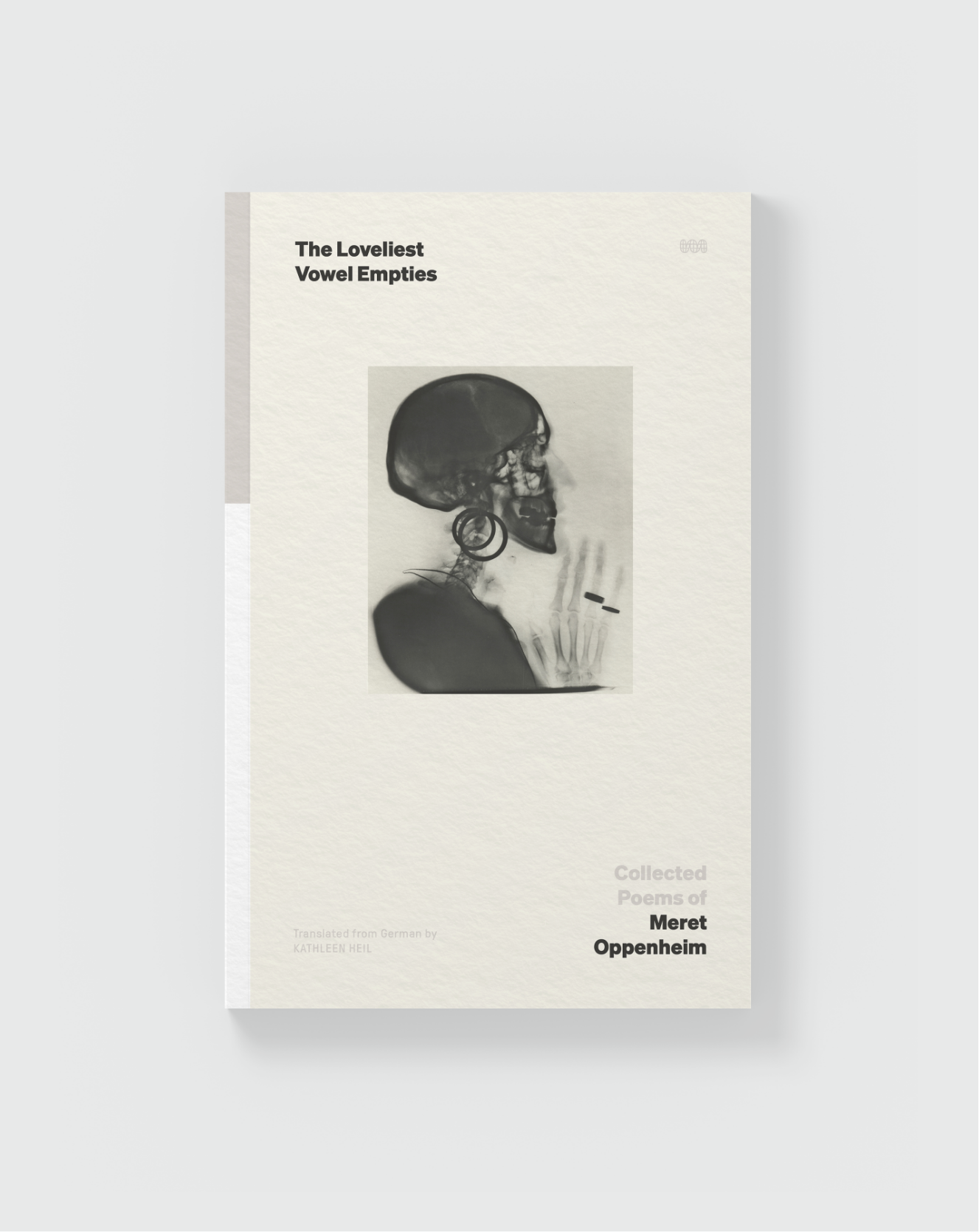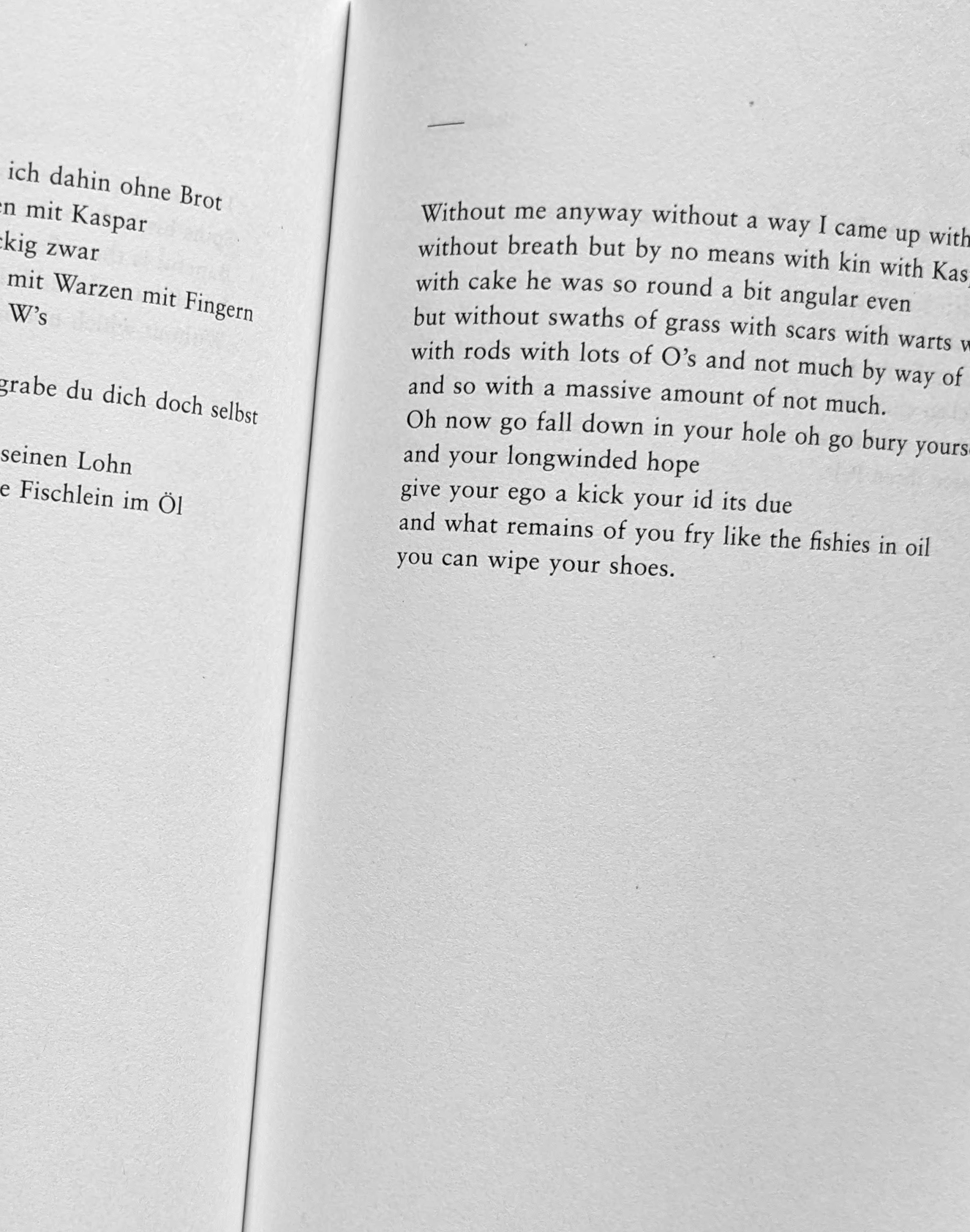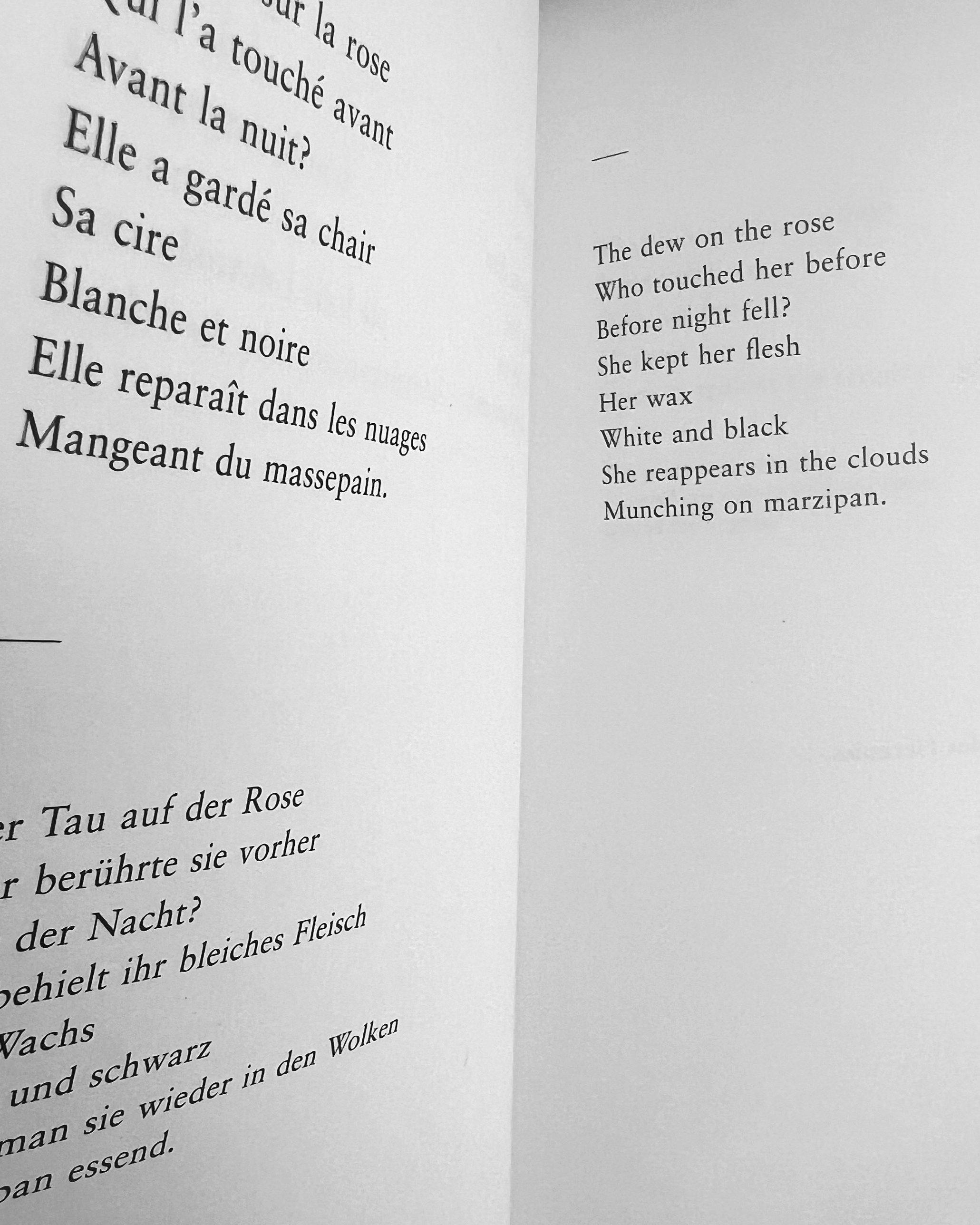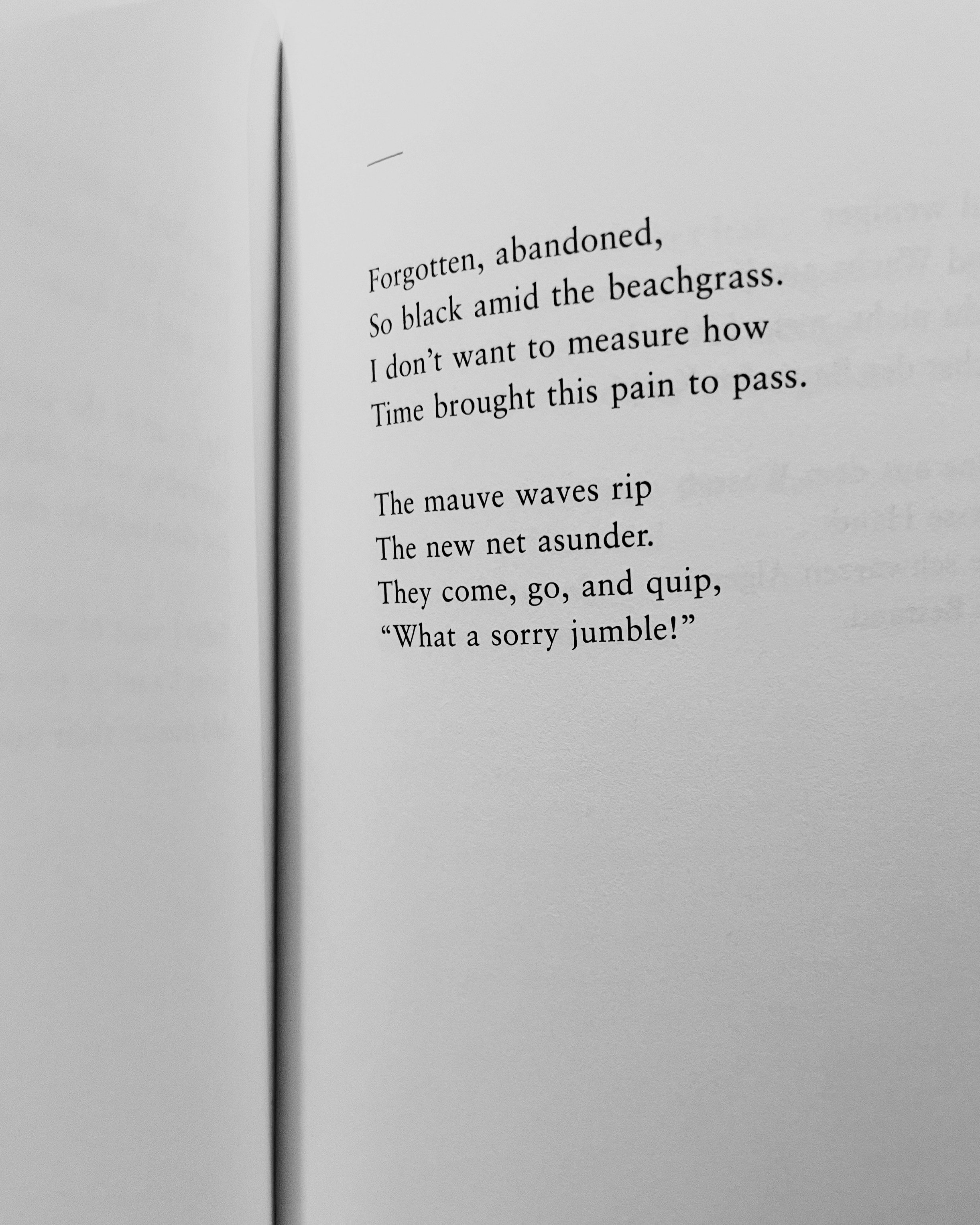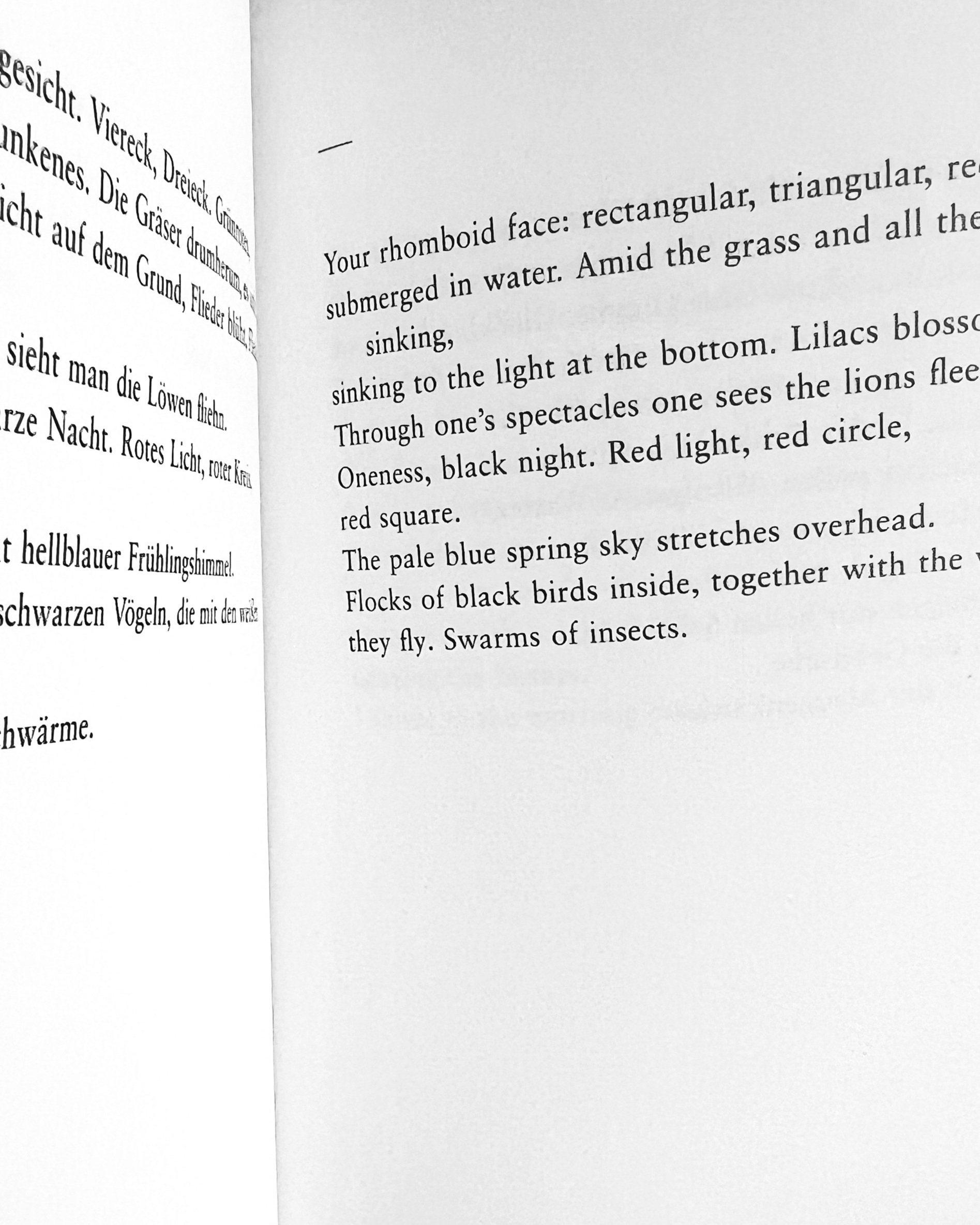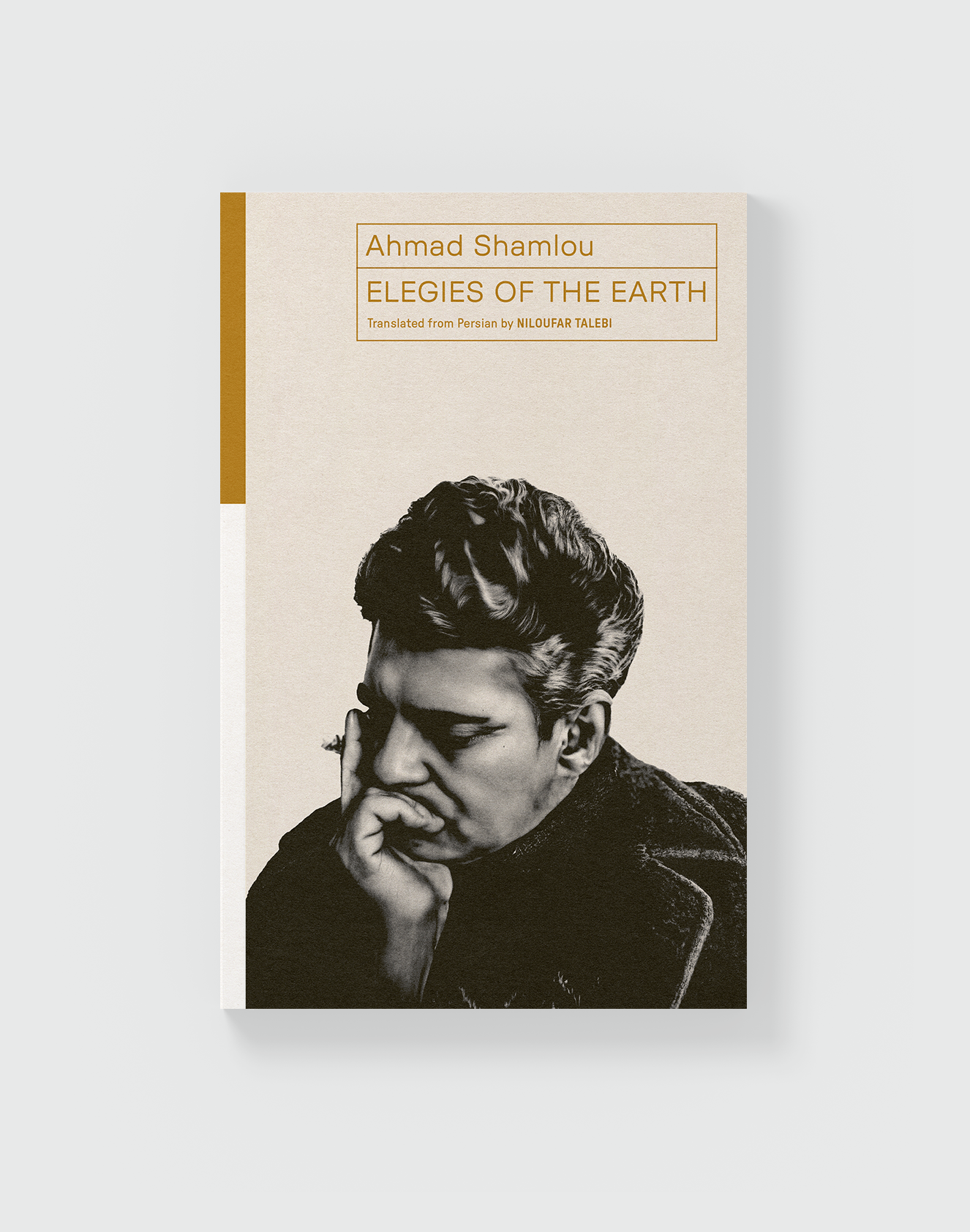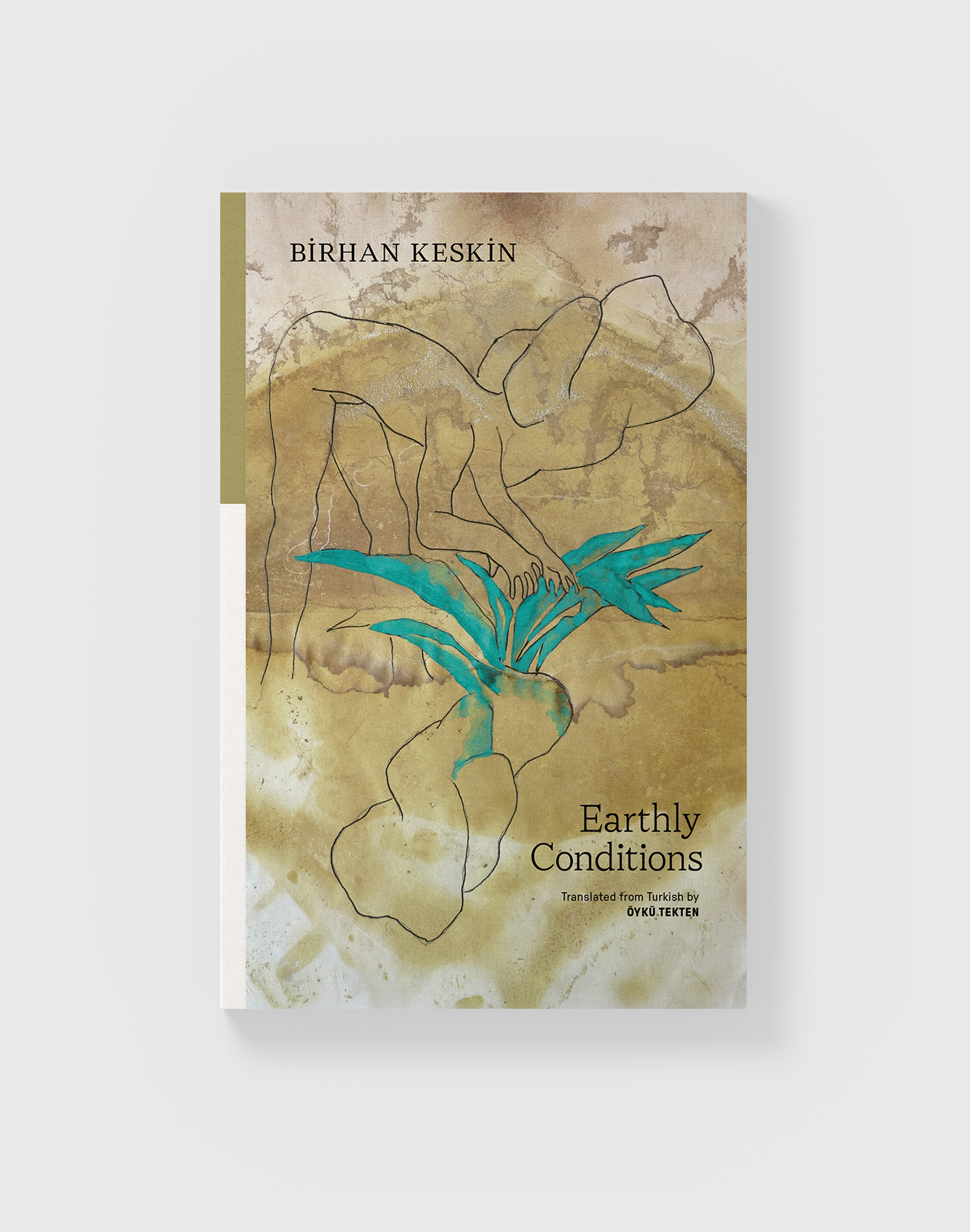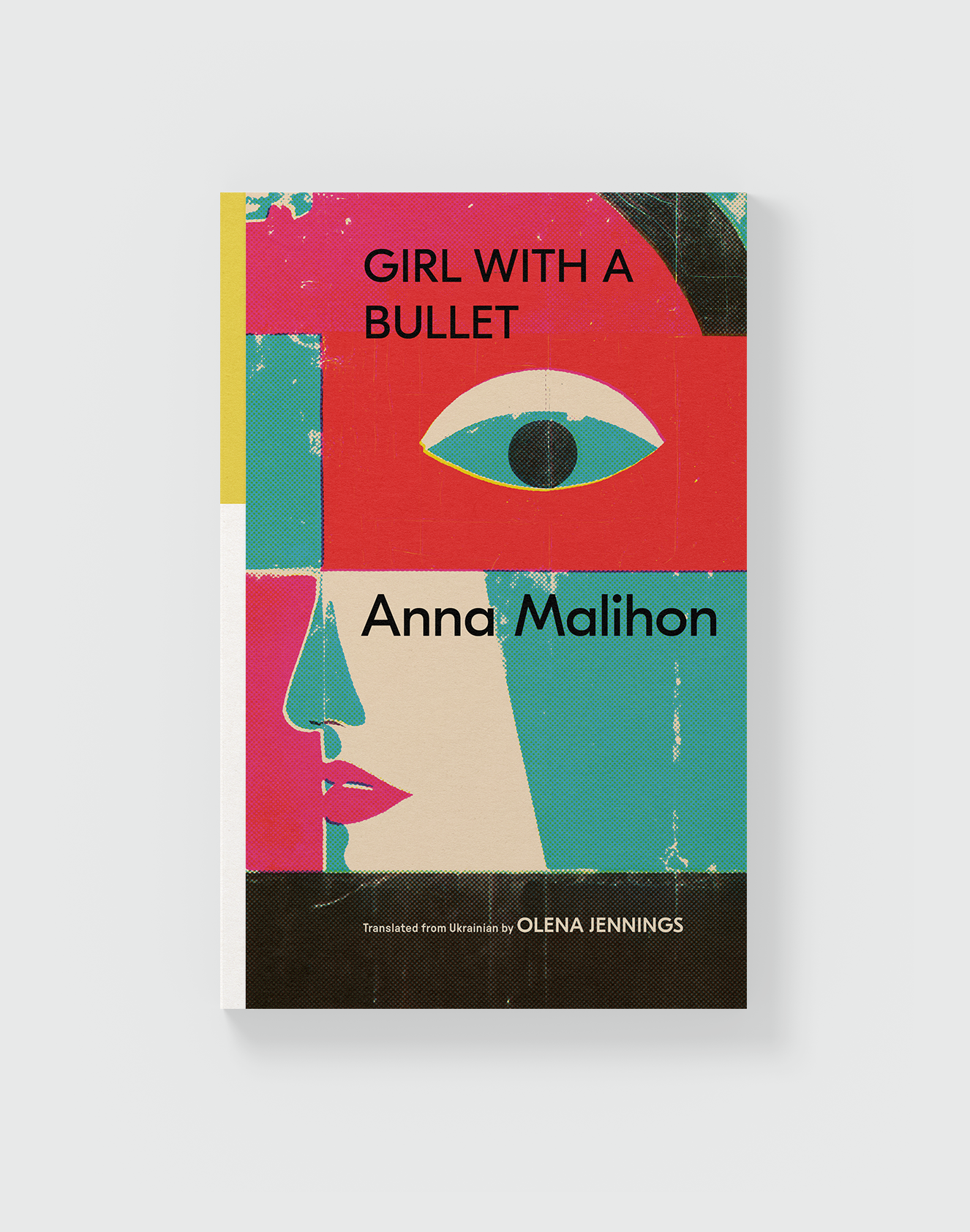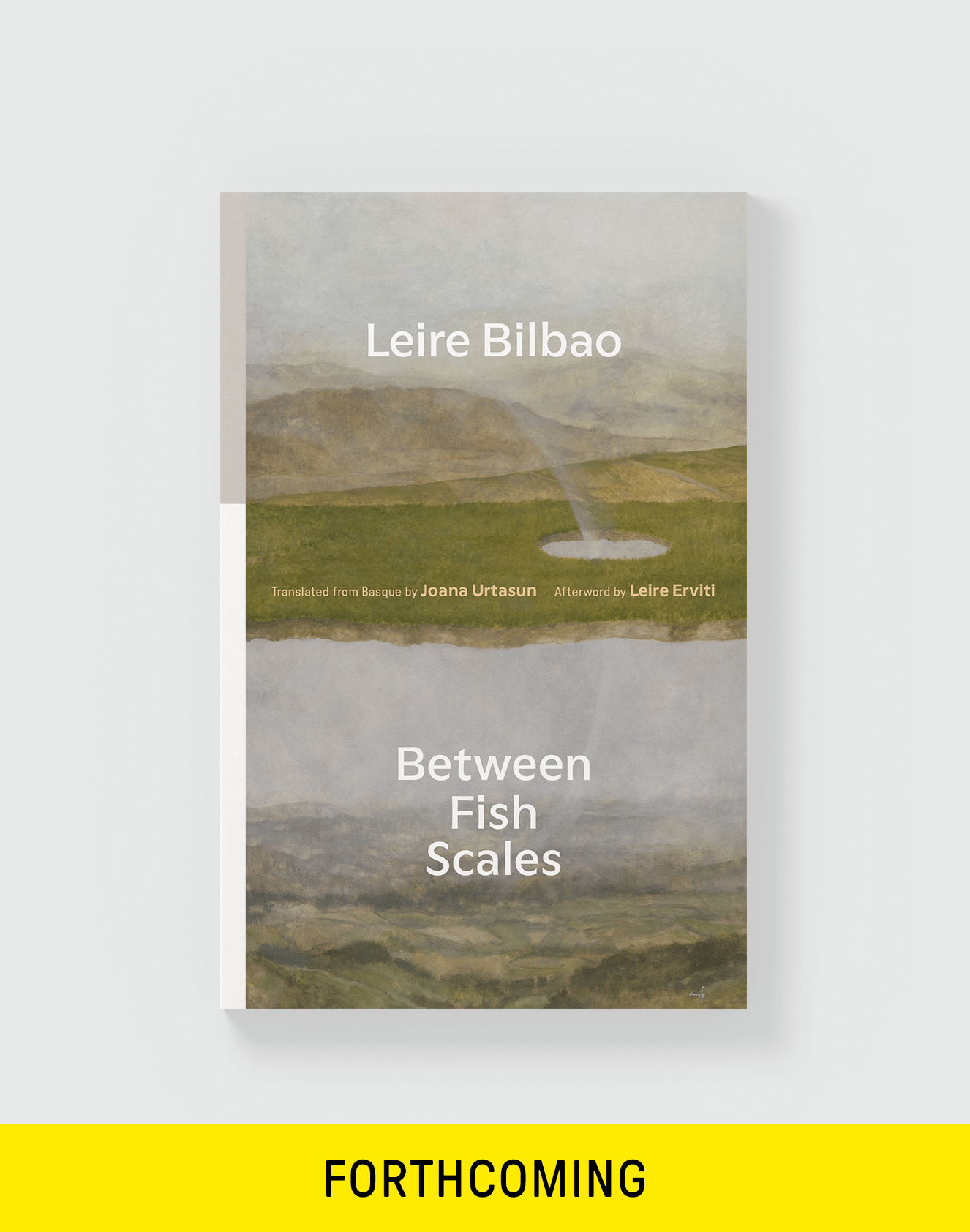Meret Oppenheim - The Loveliest Vowel Empties
-
Bilingual Edition
128 pages
February 15, 2023
ISBN 978-1-954218-08-6
Distributed by Asterism (US) and Turnaround Publisher Services (UK & EU)The work of the translator was supported by a grant of the German Translators' Fund as part of the programme NEUSTART KULTUR by the Federal Government Commissioners for Culture and Media.
Meret Oppenheim
The Loveliest Vowel Empties
Translated from German and French by
KATHLEEN HEIL
The Loveliest Vowel Empties presents for the first time in English the collected poems of legendary Swiss Surrealist Meret Oppenheim, printed with facing-page originals in German and French.
Oppenheim’s poetry—49 poems written between 1933 and 1980—moves beyond Surrealism to inhabit a voice all her own, with imagery and sound that, as the Herald Tribune wrote, “express witty and poetic responses to the surprises of life.” A key figure of the Paris art scene in the 1930s, Oppenheim moved in a circle that included André Breton, Man Ray, Marcel Duchamp, Max Ernst, and Elsa Schiaparelli. Writing for the Village Voice about her work, Gary Indiana noted that “the singularity of Meret Oppenheim’s work is such that nothing seems dated … the range of the work and its quirky self-assurance are striking.” The publication of her collected poems coincides with a major retrospective exhibition of her artwork at the Museum of Modern Art in New York.
“I am in awe of Meret Oppenheim’s poems, a seismic force heretofore unknown to me. Her aesthetic compatriots include Alejandra Pizarnik, Georg Trakl, Max Jacob, and Paul Celan—artists of deep symbol, deep void. Kathleen Heil’s translations are themselves works of the highest literary refinement and ingenuity. To read Oppenheim’s lyric bulletins, conveyed tactfully into English, is to feel that we are plunging for the first time into the pure waters of poetry itself, impervious to fad. No dross, no affectation: instead, Oppenheim gives us strangeness, tone, translucency.” —Wayne Koestenbaum
“What an ingenious way of translating this superbly ingenious poet/artist! Over and over, Kathleen Heil selects a word which many would find out of the way, although I find this a true delight. To me, it feels as deeply surrealist as possible. Two examples may suffice: for the verb ‘nimmt,’ she offers us the rare ‘thieves’ instead of the far more usual 'steals' or ‘robs’; while for ‘Wie rät ein Untergang dem nächsten?' she selects the far less ordinary phrase: ‘How does one demise advise the next?’ thus capturing a near-echo. Such a gift proves true throughout this all-in-all inventive rendering. The extraordinary Meret Oppenheim deserves no less!” —Mary Ann Caws
“The singularity of Meret Oppenheim’s work is such that nothing seems dated … the range of the work and its quirky self-assurance are striking.” —Gary Indiana, Village Voice
“What makes Meret Oppenheim both fresh and modern is her ability to produce works that express witty and poetic responses to the surprises of life.” —Herald Tribune
“The Loveliest Vowel Empties conjures the briefest fables in an enchanted atmosphere.” —Sylee Gore, Harriet
“Heil translates from Oppenheim’s German into English with a sensitivity to the differences between the way the two languages convey distinctions of meaning, and to the particular way that Oppenheim played with invented words.” —Daniel Barbiero, Arteidolia
The Swiss artist MERET OPPENHEIM (1913-1985) was born in Berlin-Charlottenburg and died in Basel. Best known for Object, her fur-lined teacup from 1936, her expansive body of work included painting, works on paper, and object constructions, as well as jewelry designs, public sculpture commissions, and poetry. From 2021-2023 her work was the subject of a major exhibition, the first transatlantic retrospective of her work, a collaboration between MoMA, The Menil Collection, and Kunstmuseum Bern.
KATHLEEN HEIL is an artist working with languages of the body and written word, whose practice encompasses dance/performance and the writing and translating of poetry and prose. Her work appears in The New Yorker, Fence, Two Lines, The Threepenny Review, and other journals. She is the recipient of grants from the NEA, German Translators' Fund, and Robert Rauschenberg Foundation, among others. Originally from New Orleans, she lives and works in Berlin.
PRESS
Reviewed by Jena Schmitt for PNR
Reviewed by John Yau for Hyperallergic
Reviewed by Leah Singer for Border Crossings
Reviewed by John Bradley for Rain Taxi Review
Reviewed by Sylee Gore for Harriet Books
Reviewed by Daniel Barbiero for Arteodolia
Reviewed by Anahid Nersessian for London Review of Books
